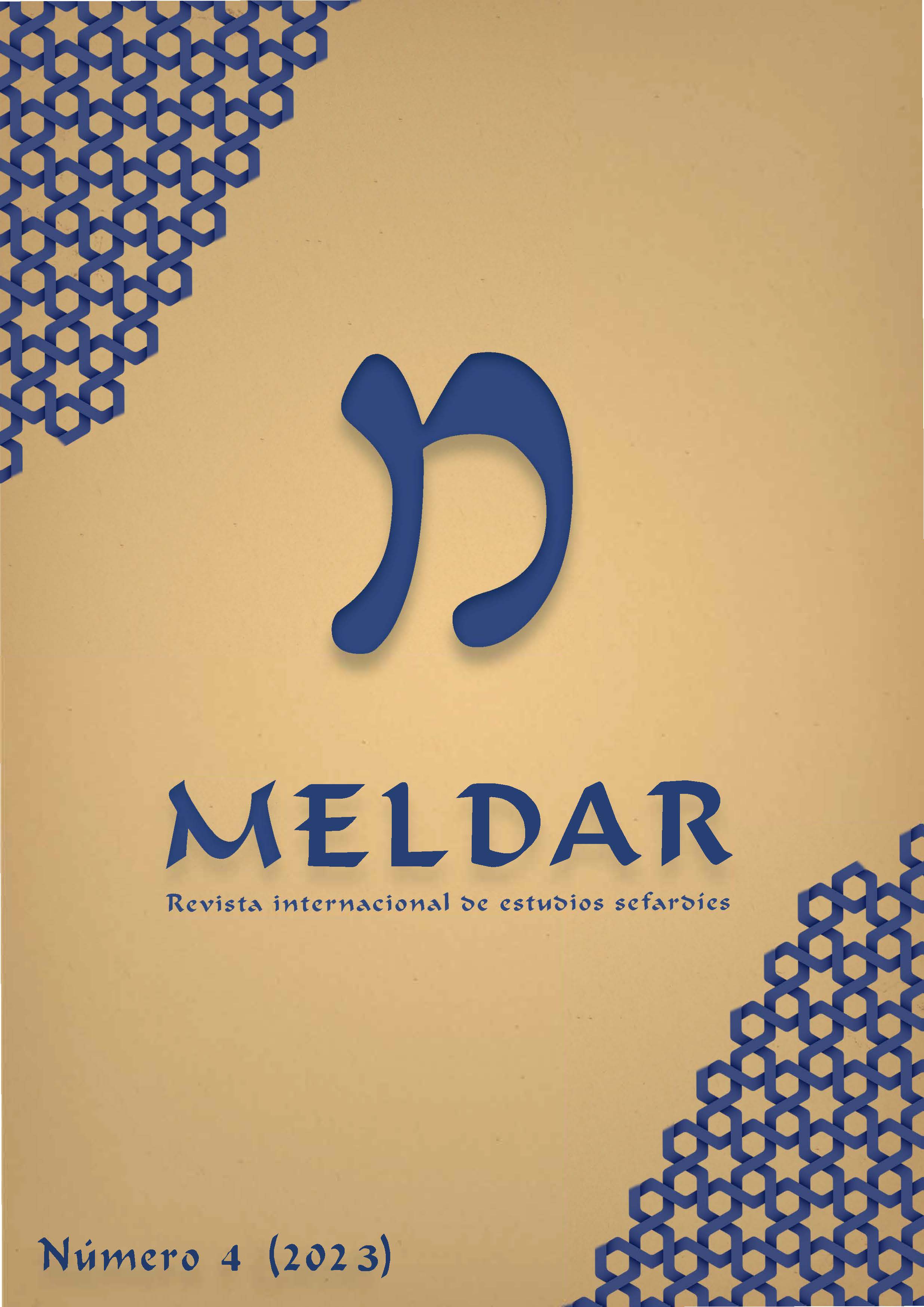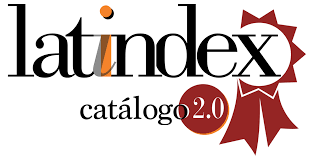Añorando un pasado perdido
Kula 930 y la comunidad judía de Estambul
DOI:
https://doi.org/10.46661/meldar.8331Palabras clave:
Sefardí, Estambul, judío, teatro, TürkyeResumen
Kula 930 es una obra de teatro escrita, producida, dirigida e interpretada exclusivamente por miembros de la comunidad judía de Estambul. Se representó por primera vez en 1978 y se considera la primera obra en Türkiye desde 1947 que se representó predominantemente en ladino (judeoespañol). Este artículo examina las razones detrás del éxito de Kula 930, desde su primera versión en 1978 hasta su cuarta versión en 2017. El artículo analiza las circunstancias y el significado del lenguaje de la obra y sus características al tiempo que destaca la evolución de ella dentro del contexto socio-histórico de los judíos en Türkiye.
Descargas
Citas
Bali, Rıfat N. (2011). The "Varlık Vergisi" Affair. Istanbul: Isıs Press and NJ: Gorgias Press. https://doi.org/10.31826/9781463225780
Bali, Rıfat N. (2017). Cumhuriyet Yıllarında Türkiye Yahudileri - Bir Türkleştirme Serüveni (1923-1945). Istanbul: İletişim Yayınları.
Bana, İ. İzzet. (2007). Ulus Özel Musevi İlk. Okulu Tiyatro Çalıştırıcısı İzzet Bana ile Söyleşi. Mimesis. Retrieved from https://www.mimesis-dergi.org/2010/03/ulus-ozel-musevi-ilkogretim-okulutiyatro-calistiricisi-izzet-bana-ile-soylesi/
Eberhard, David M. (2018). Language Shift and Identity: Exploring Factors Which Condition Identity When a Traditional Language is Lost. Manusya: Journal of Humanities, 21(2), 27-51. https://doi.org/10.1163/26659077-02102002
Fishman, Joshua A. (1996). What Do You Lose When You Lose Your Language? In Gina Cantoni (ed.), Stabilizing Indigenous Languages (pp. 80-91). Retrieved from https://files.eric.ed.gov/fulltext/ED395732.pdf
Fishman, Joshua A. (2006). Language Policy and Language Shift. In Thomas Ricento (ed.), An Introduction to Language Policy: Theory and Method (pp. 311-328). US: Blackwell Publishing. Retrieved from https://books.google.com.tr/books?hl=en&lr=&id=ADw4TsEoQkAC&oi=fnd&pg=PA311&dq=joshua+a+.+fishman+language+policy+and+language+shift&ots=4gOyQbj2yI&sig=bLgbjzkwXMUIrY7G6vdq-iiYopc&redir_esc=y#v=onepage&q=joshua%20a%20.%20fishman%20language%20policy%20and%20language%20shift&f=false
Gabay, Moiz. (2020). Pera ve Galata'da Yahudi İzleri 5: Galata'daki Yahudilerin sosyal yaşamı ve apartmanlarında Yahudi İzleri. Gazete Duvar. Retrieved from https://www.gazeteduvar.com.tr/konuk-yazar/2020/07/17/pera-ve-galatada-yahudi-izleri-5-galatadaki-yahudilerin-sosyal-yasami-ve-apartmanlarinda-yahudi-izleri
Kedourie, Elie. (2004). The Chatham House Version and Other Middle Eastern Studies. Chicago: Ivan R. Dee. Retrieved from https://ia600204.us.archive.org/17/items/KedourieElieTheChathamHouseVersionAndOtherMiddleEasternStudies/Kedourie,%20Elie%20-%20The%20Chatham%20House%20Version%20and%20Other%20Middle%20Eastern%20Studies.pdf
Lockowandt, Mara M. (2012). Tragedy, Cultural Politics and Representing the Past in The Sephardic Jewish Diaspora, PhD Dissertation. University of London. Retrieved from https://pure.royalholloway.ac.uk/ws/portalfiles/portal/14776448/Lockowandt_Full_Master_2013.pdf
Ott, Brian L. (2017). Affect. Oxford Research Encyclopaedia of Communication, 3. Retrieved from https://www.researchgate.net/publication/319162004_Affect
Özkan, Recep. (2003). Cumhuriyet ve Dil/Toplumsal Birlik Açısından Dilin Önemi. Milli Eğitim Dergisi, 160. Retrieved from https://dhgm.meb.gov.tr/yayimlar/dergiler/milli_egitim_dergisi/160/ozkan.htm#:~:text=Ortak%20dil%20ortak%20kader%20birli%C4%9Fi,denilen%20sosyal%20varl%C4%B1%C4%9F%C4%B1n%20temelini%20olu%C5%9Fturur
Romero, Elena. (1979). El Teatro de los Sefardíes Orientales. Madrid: Instituto Arias Montano.
Sapir, Edward. (1921). Language: An Introduction to the Study of Speech. New York: Harcourt, Brace. https://www.ugr.es/~fmanjon/Sapir,%20Edward%20-%20Language,%20An%20Introduction%20to%20the%20Study%20of%20Speech.pdf
Schaefer, Donovan O. (2016). It's Not What You Think: Affect Theory and Power Take to the Stage. Durham: Duke University Press. Retrieved from https://dukeupress.wordpress.com/2016/02/15/its-not-what-you-think-affect-theory-and-power-take-to-the-stage/
Stanford, J Shaw. (1991). The Jews of the Ottoman Empire and the Turkish Republic. London: Macmillan Press Ltd.
Toktaş, Şule (2006). Jews and their Immigration to Israel. Middle Eastern Studies, 3, 505-519. https://doi.org/10.1080/00263200500521479
Valentín, María del Carmen. (2010). Judeo-Spanish Theatre. European Judaism, 43 (2), 91-101. https://doi.org/10.3167/ej.2010.430209
Yaycıoğlu, Mukadder (2009). Geçmişten Günümüze Türkiye'de Çokkültürlü/Melez Sefardi Tiyatrosu, Tiyatro Araştırmaları Dergisi, 27, 61-123. Retrieved from https://dergipark.org.tr/tr/download/article-file/118196
https://doi.org/10.1501/TAD_0000000219
Zayas, Alfred de. (2007). The Istanbul Pogrom of 6-7 September 1955 in the light of international law. Genocide studies and prevention, 2 (2), 137-154. https://doi.org/10.3138/gsp.2.2.137
Descargas
Publicado
Cómo citar
Número
Sección
Licencia
Derechos de autor 2023 Meldar: Revista internacional de estudios sefardíes

Esta obra está bajo una licencia internacional Creative Commons Atribución-NoComercial 4.0.
Las obras se publican en la edición electrónica de la revista bajo una licencia Creative Commons Reconocimiento-NoComercial-4.0 Internacional: se pueden copiar, usar, difundir, transmitir y exponer públicamente, siempre que:
- Se cite la autoría y la fuente original de su publicación (revista, editorial y URL de la obra).
- No se usen para fines comerciales.
- Se mencione la existencia y especificaciones de esta licencia de uso.




 @meldar__
@meldar__


